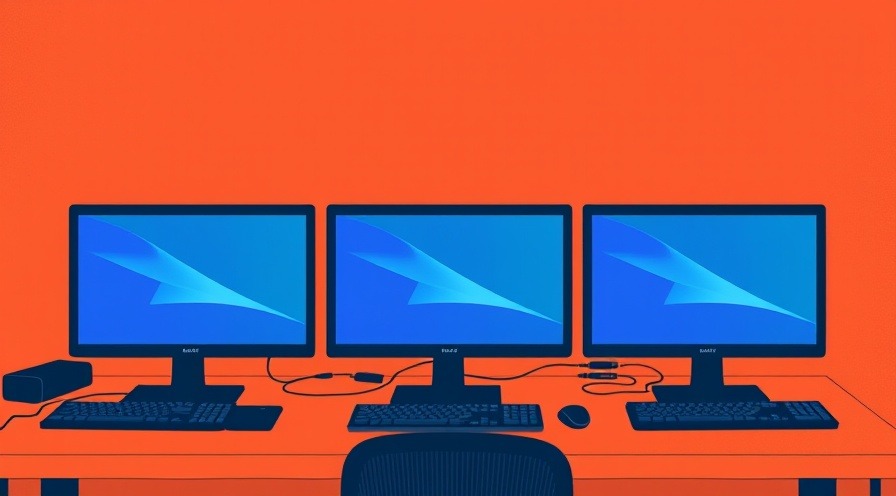
How to Have 10 Computers in One: Virtualization for People Who Can’t Commit
Because why settle down with one machine when you can swipe right on ten?
What Is Virtualization, Really? 💻
Imagine giving your laptop multiple personality disorder—but on purpose.
At its core, virtualization is the process of creating a virtual version of something—usually a computer system, operating system, storage device, or network resource. You're basically tricking your hardware into thinking it’s running multiple systems at once.
And the best part? They’re all isolated from each other, like your alter egos on different dating apps. 👀
“Virtualization allows you to run multiple operating systems on a single physical machine. Each virtual machine acts like a full computer,” says VMware, one of the godfathers of virtualization tech.
The Tech Behind It (No Jargon, Pinky Promise) 🧰
Here’s how it works in “human-speak”:
The Host – This is the real, physical computer (aka the “chaperone”).
-
The Hypervisor – Think of this as the matchmaker or bouncer. It’s the software layer that lets the host create and manage virtual machines (VMs). There are two types:
Type 1: Bare-metal (e.g., VMware ESXi, Microsoft Hyper-V)
Type 2: Hosted (e.g., VirtualBox, VMware Workstation)
Virtual Machines (VMs) – These are the individual “dates.” Each VM has its own OS, apps, and virtual hardware.
And no, the VMs don’t know they’re not the “real” machine. It’s very Westworld.
😎 Why Should You Care? (Besides Sounding Cool in Interviews)
Here’s why IT pros, students, and businesses are crushing on virtualization:
🔄 1. Run Multiple OSes on One Machine
Windows, Linux, Mac—all at once. Like a buffet of operating systems. No more dual-boot drama.
💥 2. Testing Without Tears
Break stuff in a VM, not your real system. Want to try malware analysis? Go wild—your real machine stays safe.
💸 3. Save Money and Space
One powerful machine can replace a room full of servers. Your electric bill and IT budget will thank you.
🛠️ 4. Easier Backups and Snapshots
VMs can be saved, duplicated, or reverted like Instagram filters. Had a “whoopsie” moment? Just roll back.
🌍 5. The Backbone of Cloud Computing
Ever used AWS, Azure, or Google Cloud? You're already benefiting from virtualization, whether you knew it or not.
Who Uses This Stuff? 👨🏫
Developers who want different environments without carrying 5 laptops like tech sherpas.
IT Support for testing updates or running legacy apps.
Cybersecurity pros doing penetration testing in isolated environments.
Certification students practicing labs for CompTIA, Microsoft, and Cisco exams.
Real Talk: Virtualization & Certifications 🎓
Here’s why virtualization matters if you're certification-hunting:
"Understanding virtualization is foundational to modern IT infrastructure," says Mike Meyers, author of the best-selling CompTIA A+ Certification All-in-One Exam Guide. “It shows up across CompTIA A+, Network+, Security+, and even cloud certifications.”
Even Cisco includes virtualization concepts in their CCNA exam. And in AWS and Azure certs? It's basically half the test.
Try It Yourself: No Lab? No Problem. 🧪
Wanna dabble in this wizardry? Here’s your free starter pack:
Download VirtualBox (free) – It’s open-source and beginner-friendly.
Grab an ISO file – Think of it as the “install disk” for an OS. Ubuntu is a great start.
Create your first VM – Give it a name, assign RAM, and follow the wizard.
Install and play! – You now have a second computer… inside your computer.
Boom. You just Inception’d your laptop.
Bonus Nerd Knowledge 🧠
Docker ≠ Virtualization: Docker is containerization. It’s like VMs, but lighter, faster, and designed for apps, not full OSes.
-
Virtualization ≠ Emulation: Emulation pretends to be completely different hardware (like playing Nintendo 64 on your phone). Virtualization uses your actual hardware more efficiently.
TL;DR
Virtualization is like speed dating for your computer—one physical machine, multiple digital personas. It’s the tech behind cloud computing, data centers, and your cousin’s sketchy “hackintosh.” Whether you're an IT beginner or a certification chaser, understanding virtualization is a game-changer.
🤯 Final Thoughts: One Machine. Endless Possibilities.
Virtualization lets you do more with less. It's like having a Swiss Army knife instead of a drawer full of random tools—or, if you prefer, one stable relationship with all the perks of variety (no cheating involved).
So next time someone asks if you know virtualization, smile confidently and say:
“Yeah, I run multiple operating systems on my laptop. It’s kind of like hosting a techy version of The Bachelor.”
📢 Ready to Learn More?
-
🏆 Top Certifications to Consider:
CompTIA A+, Network+
Microsoft Certified: Azure Fundamentals
AWS Certified Solutions Architect
VMware Certified Professional (VCP)
Got questions? Confused by hypervisors? Still think VirtualBox is a cereal? We speak fluent geek and normal human but consider these...
-
🔗 Helpful Resources:
 Add Row
Add Row  Add
Add 




Write A Comment